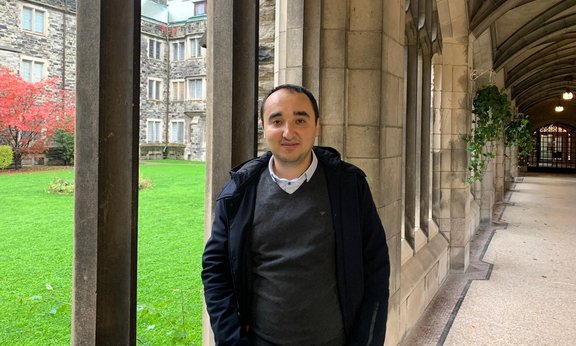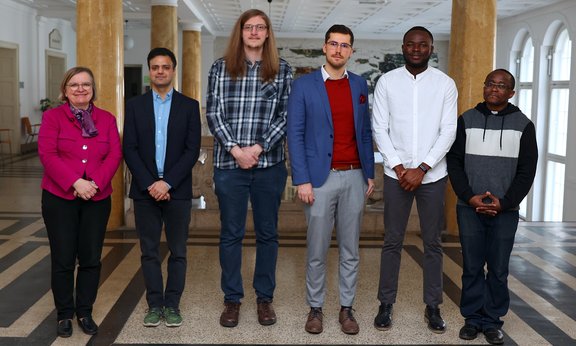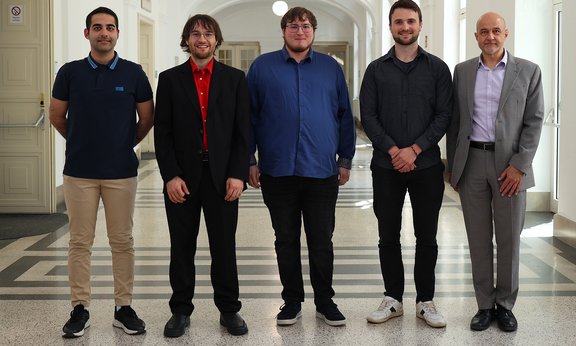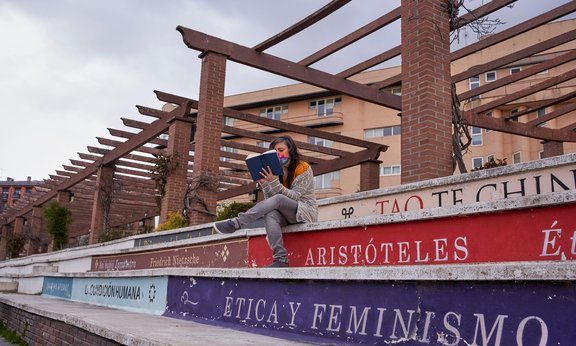Master’s Programme Philosophy of Religion
Would you like to understand religion as a topic of philosophical sub-disciplines and critically analyse world views?
The English-language Master‘s program Philosophy of Religion trains students in the skills needed to analyze religious and other worldviews. It does so both from the perspective of philosophy (especially metaphysics, epistemology, and ethics) and in dialogue with neighboring sciences. The Master’s program illuminates the similarities and differences between religious and scientific truth claims, and explores the intersections between religion, society, and politics.
The course teaches the critical-thinking skills needed to develop reasoned and responsible viewpoints in contemporary social, intercultural, and interreligious contexts that require sensitivity to the plurality of worldviews in globalized societies.
Study Code
C 066 794
FAQ
The programme imparts an independent and factually sound ability to judge in the "big questions" of philosophy of religion in history and the present, which takes into account the peculiarity of the rationality of worldviews as well as worldview-related and interreligious dialogue. Graduates acquire the competence to elaborate and present the relevance of theoretical issues both for their own life design and with regard to social responsibility.
The Master’s Programme Philosophy of Religion is an in-depth philosophical education that builds on a Bachelor’s Programme in philosophy, theology, religious studies or other relevant studies to address fundamental questions of people related to worldview and religion.
It provides the competence to examine the phenomenon of religion in its various aspects at the highest theoretical level from the perspective of the individual philosophical disciplines and in dialogue with other sciences. It enables graduates to relate important religious and philosophical traditions to representative contemporary positions and can thus be the basis for innovative approaches to thinking.
Graduates of the Master's Programme Philosophy of Religion are qualified for professional activities that require the ability to analyse and solve complex problems.
They have acquired key qualifications that are necessary for this: specialised orientation knowledge in an intercultural context, the special ability for critical analysis, for argumentatively comprehensible and scientifically responsible statements, also in the social-cultural and political field. For it is precisely there that competence and sensitivity with regard to religious plurality and interreligious dialogue play an increasingly important role.
Graduates can take on higher-level tasks requiring special qualifications in the fields of education, media, publishing and administration.
Graduates tracking: Shows which occupational fields students enter after graduation
Doctoral Programmes
More offers
Faculty of Catholic Theology Examination Office Information for students with disabilities
Why study Philosophy of Religion in Innsbruck?
Watch this video to find out what it's like to study Philosophy of Religion in Innsbruck.
The Institute of Philosophy at the Faculty of Theology at the University of Innsbruck is internationally renowned and recognised for its academic excellence in systematic philosophy with a focus on the philosophy of religion.
The new Master's programme includes modules in metaphysics, epistemology, philosophy of language, social philosophy and ethics, which are discussed with regard to the "big questions" of philosophy of religion. The programme can be completed either online via distance learning or on campus.
Curriculum
From the field

Auszeichnung für wissenschaftliche Leistung
Ass.-Prof. Mehmet H. Tuna vom Institut für Islamische Theologie und Religionspädagogik der Universität Innsbruck erhält den begehrten „Artikel des Jahres“ in der renommierten Zeitschrift British Journal of Religious Education.

FWF fördert fünf Projekte
Bei der FWF-Kuratoriumssitzung Ende April in Wien wurden drei Einzelprojekte und zwei Esprit-Projekte von Wissenschaftler:innen der Universität Innsbruck bewilligt.

Acht Doktoratsstipendien vergeben
Ende Februar 2023 wurde die dritte Tranche der Doktoratsstipendien aus der Nachwuchsförderung 2022 im Archäologischen Universitätsmuseum im Hauptgebäude vergeben. Acht Dissertant*innen aus sieben Fakultäten können sich über eine Förderzusage freuen.

Sieben Doktoratsstipendien verliehen
Anfang Juni 2023 wurde die erste Tranche der Doktoratsstipendien aus der Nachwuchsförderung 2023 in der Aula im Hauptgebäude vergeben. Insgesamt sieben Dissertant:innen aus sechs Fakultäten können sich über eine Förderzusage freuen.
Related studies

Islamic Theological Studies (Master)
Master of Arts

Catholic Religious Education (Master)
Master of Arts




